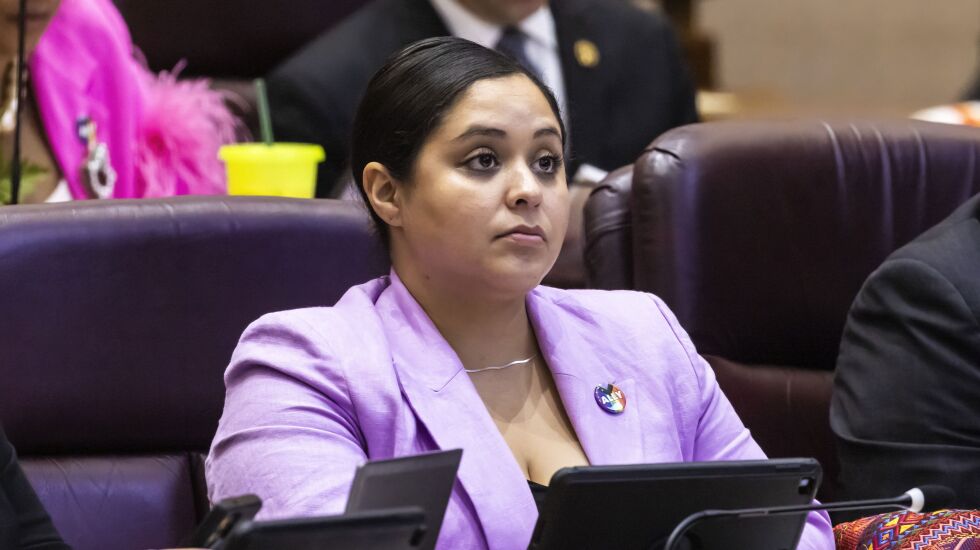
Several members of the City Council urged colleagues Thursday to reject a controversial ruling that would allow cops to have the most serious disciplinary cases decided behind closed doors — joining a chorus of critics who warn the move will erode transparency and community trust.
Independent arbitrator Edwin Benn ruled in June that officers facing dismissal or suspensions over a year could opt to move their proceedings to arbitration instead of going before the Chicago Police Board.
The move is an outgrowth of labor negotiations between the city and the Fraternal Order of Police and now requires approval from the full Council. A vote hasn’t been scheduled.
“Let’s not take steps back,” Ald. Julia Ramirez (12th) told reporters. . “But let’s keep working together to make sure that cops are held accountable.”
Should Council members reject Benn’s decision, it would be sent back to him for revisions and then returned for another vote. Another down vote would start the process again.
On Thursday, alderpersons were joined by activists who pushed to create a civilian-led commission with broad police oversight powers and elected councils for each of the city’s 22 police districts.
Anthony David Bryant, a civilian elected to the Wentworth Police District council, claimed the FOP is now working to “sidestep that community oversight and police accountability.”
Anthony Driver, president of the Community Commission for Public Safety and Accountability, told the Sun-Times that moving the most egregious misconduct cases out of public view would make it impossible to monitor or determine whether the discipline meted out is comparable to similar cases.
“Right as we’re trying to turn the corner on some things, this sets us back,” Driver said.
The FOP filed a motion last month with the police board to transfer or stay 22 pending cases, indicating officers’ intentions to have them heard by an outside arbitrator in the wake of Benn’s decision.
John Catanzara, the fiery FOP president, said other public workers in unions are already afforded the same option and police are being held to another standard.
“You can’t say you support the Democratic Party, which is supposed to be the party of labor, and then vote against a labor provision that everybody else gets,” said Catanzara, a vocal supporter of former President Donald Trump. “This isn’t some unique decision or award. It’s very routine, quite frankly.”
Catanzara’s career as a Chicago cop came to a dramatic end in November 2021 when he stormed out of a police board hearing as he faced dismissal for allegedly making inflammatory social media posts and filing false reports against superior officers.
He said he would’ve taken his case to an arbitrator if he could have — and he’s confident that Chicago cops will soon have that option.
“This is going to be a reality,” he said. “It is a train coming down the tracks that nobody can really stop.”







